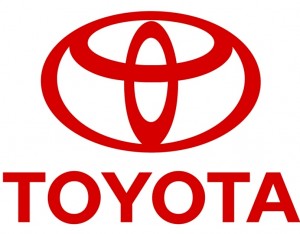Further complicating Toyota’s ongoing problems, the automaker faces the prospect of at least three class action lawsuits filed by angry shareholders claiming the Japanese maker understated the degree of its safety-related problems, improperly propping up its stock price.
Toyota’s share price has rebounded somewhat – hitting $79.56 on Friday – from a low of $60.42 – but that’s still down from the 52-week high of $91.97. Just since the automaker’s January 21 announcement that it would recall 2.3 million vehicles and shut down five plants to deal with a potentialy sticky accelerator, the stock price has tumbled about 13%, wiping out $25 billion in market capitalization.
The proposed class actions claim that Toyota misguided investors when, last October, it staged an earlier recall to deal with sudden acceleration problems, insisting that the matter would be resolved by dealing with so-called “carpet entrapment,” in which loose floor mats could jam accelerator pedals.
In an October news conference, Bob Carter, general manager of the Toyota division, labeled talk of other problems, “unwarranted speculation.”
The various legal actions have all been filed in federal court in California, where Toyota Motor Sales USA is headquartered. They all seek to be certified as class actions, which would allow them to represent all Toyota shareholders in the U.S. who held the company’s stock on specific dates. Damages, if the claims are upheld, could potentially reach into the billions of dollars.
Toyota “misled investors by failing to disclose that there was a major design defect in Toyota’s acceleration system, which could cause unintended acceleration,” said the paperwork filed by one of the plaintiffs, Harry Stackhouse, a Pennsylvania investor who purchased 40 shares just as the company’s safety problems began to worsen, late last year.
While investor lawsuits are considered difficult to win, there have been some notable successes, including the $6 billion paid out by the former auditors of Enron Corp. Now bankrupt, Arthur Andersen paid out more than $6 billion for helping cover up the energy trading company’s financial problems.
Toyota, meanwhile, faces a raft of lawsuits filed by owners of its products, some of those suits also seeking to be certified as class actions. The legal claims cover a gamut of issues, most arguing they – or deceased family members – were injured in crashes caused by allegedly defective Toyota products. But other owners contend that Toyota’s problems have led to a decline in the value of their vehicles, and are seeking to make up that gap when they trade in those products. A hearing in federal court in San Diego, next week, could determine if and how the various lawsuits might be can be consolidated.
A research report from JP Morgan, earlier this month, estimated that the various legal actions could eventually cost Toyota more than $3 billion.

